What’s in coffee cherry? A quick look at 7 distinct cultivars
Get to know the 7 cultivars that will be included in our upcoming February 2026 Coffeevine edition. Build your knowledge, enjoy your coffee.
Specialty coffee and, more specifically, third wave coffee has taken the world by storm in the last decade. Suddenly, people the whole world over are rediscovering a hot beverage they thought they knew and becoming ever more educated on the subject, either by their local barista, coffee nerd friends, events and media.
One of the pioneers of online content creation that focused entirely on specialty coffee is a website that many of us have come across and learned to love. Sprudge.com, probably the world’s most important coffee news company, first saw the day of light when old friends Jordan Michelman and Zachary Carlsen began publishing stories while still living in Seattle.
The Coffeevine’s Alex Kitain spoke at length with co-founder Jordan Michelman to find out more about Sprudge.com’s history and to get his invaluable insights into the past, present and future of specialty coffee.
The Coffeevine: When you and Zach launched Sprudge back in 2009 it must have been a faily low-key operation. What did a typical day at Sprudge look like back then?
Jordan Michelman: We started the site in 2009 without any kind of investment or backing—I don’t think I knew what “VC” was in 2009.
In those early days, both Zachary and I lived in Seattle – the site is based in Portland now – and both of us still had full-time jobs. So a typical day for us involved working and doing Sprudge on top of that. For Zachary, this meant opening a cafe in the mornings as a barista, working until 1pm or so and then being online to work on Sprudge from like 2pm onward.
For me, I was working some bartending and table waiting jobs, playing a lot of music and generally just kind of…hanging out.
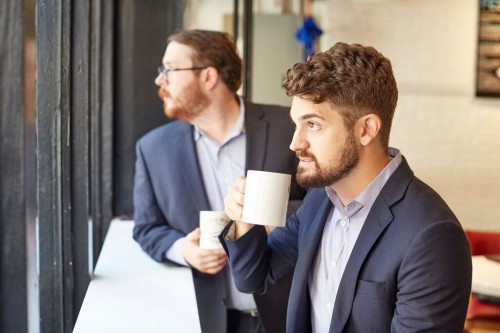
I would usually work on Sprudge until around 3pm, then go in and work evening service worker shifts at the bar or the restaurant. I remember it being really critical that Zachary and me had like an hour of overlap between our jobs so we could talk and go through content ideas.
We were both working really hard to make the site a thing and get it off the ground and, as a result, neither Zachary nor I were able to really value our time or dignity in the very beginning. Now we have a team and help and, can take days off and stuff, but in the early days there was no help. I think we felt like if we took a day off the whole project would die.
CV: Did you ever anticipate it would become this big?
JM: I don’t think we knew in 2009 that specialty coffee would grow at such a hot exponential rate over the last six years. I think that, being honest, we had very little foresight or understanding of our project’s potential in those early days.
The 2008 financial market collapse had just happened and that kind of informed the mindset. We were just trying to crack each other up and talk about coffee stuff we thought was cool.
“It is my belief that when it comes to media, your best case scenario is to be written about by a mix of local and national and international press.”
Eventually we got approached about selling ads and I think from there we started to dream about what the site could someday be, but in the earliest genesis we were just trying to write funny headlines and photoshop James Hoffmann as much as possible.
CV: Specialty coffee has become a global phenomenon over the past 10 years. Do you remember your first international article?
JM: No. I would have to go back and look through the archives. No one individual story sticks out, but that’s because from the very early days, Sprudge has tuned in to international coffee culture. The culture around the World Barista Championship has always really informed how we find news and who we pay attention to and, that goes back to the earliest weeks of the site.
Internationalism is kind of cooked into our DNA at this point. Roughly 50% of our readers are based outside the United States, which is a very unusual for an American publication. In the early days we were just trying to hunt for news or interesting topics around the world, but today we’re able to publish international reporting written on the ground in different countries by our staff writers and contributors.
Our first international trip as a publication was less than a year after we started the publication and in addition to our international writing staff, Zachary and I still travel internationally several times each year. It’s a big part of our brand.
CV: These days the internet is ruled by bloggers who often also write in their mother tongues and, have much better local knowledge of developments in their cities. How does a global site like Sprudge remain locally relevant for coffee people across the world?
JM: This dovetails with something I talk about a lot with small business owners. It is my belief that when it comes to media, your best case scenario is to be written about by a mix of local and national and international press. Local press is always going to be huge, I think, especially if you’re in a city or region with lots of cafes and local coverage is so important for driving foot traffic and building a culture, especially when you’re brand new.
But international press offers another set of opportunities. Production values for international publications tend to be a bit higher, which means hopefully they’re going to do a good job at telling your story and making it look beautiful.
The opportunity to draw in tourists and visitors grows, also known as coffee pilgrims. And there’s a prestige factor too. For a lot of small business owners, the chance to be featured by a global media publication is pretty meaningful, because this is their life’s work and now people around the world are seeing it.
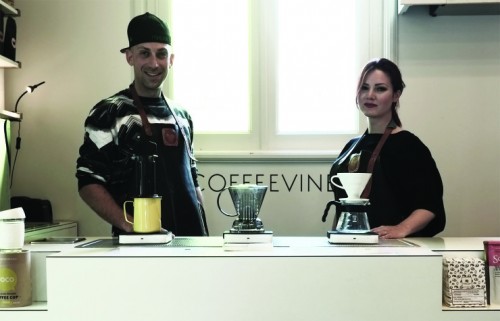
You asked about “locally relevant” and that’s interesting too. I think coffee plays by a bit of a different game here than say, food and restaurant writing, which tends to be hyper localized and now has been micro blogged ad infinitum. We’ve learned over the years that when it comes to these progressive cool new cafes, our readers don’t really care if a story takes place in Auckland or Oakland or Tokyo or Texas. If it’s interesting and aesthetically engaging, they want to see it.
CV: Did you ever consider publishing a printed version of Sprudge? Something like Standart Magazine does now?
JM: Standart is awesome! That’s something I look forward to picking up on my European trips. Both Zachary and I are pretty unabashed magazine nerds. Europe has a tremendous magazine culture and that’s one of my favorite things about traveling there. We geek out on Noble Rot and Delayed Gratification (from London), The Travel Almanac (from Berlin) and, Apartamento and Perdiz (from Barcelona) to name just a couple of favorites.
Out of beans? Visit our brand new online shop and buy beans directly from some of our most favourite roasters. World wide shipping available on many products!
We’ve flirted with the idea of doing a print version of Sprudge and have had a couple of interesting offers but, nothing has been quite right yet. We are in no rush but, it would be really fun someday with the right team.
CV: Coffee drinkers in heavily saturated cities like Portland, London or Tokyo have developed a pretty strong understanding of what constitutes “great coffee” but, isn’t there also the risk of something of a coffee bubble?
JM: It’s interesting because you’re comparing three very unlike cities—Portland, London and Tokyo. The entire city of Portland has about 600,000 people in it, Tokyo has 13 and a half million! That’s more than 20 times as big.
In a small city like Portland, a “coffee bubble” expresses itself very differently than it does somewhere like New York or London or Tokyo. I’ve heard it said that Portland has some of the best worst coffee in the world; that even the greasy spoon diners and Mommy & Me Fun Centers are serving a baseline product that’s of a higher quality than what you’d typically find served in that setting.
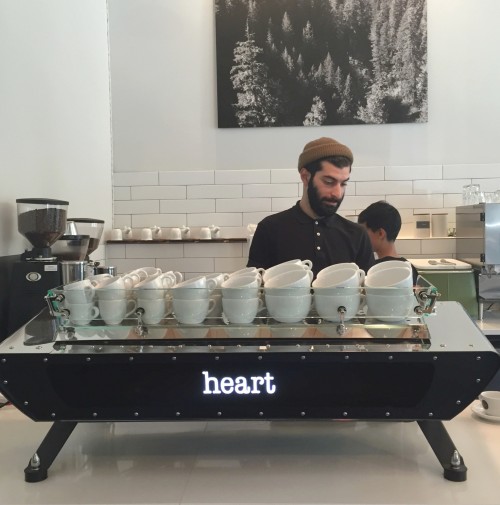
I think it makes it hard to live here and drink bad coffee. The prevalence of good coffee here, compared to say, Folgers Crystals or whatever has really democratized this place for coffee drinkers. I don’t think there’s a bubble here, or if it is, it’s part of the wider floating Portland lifestyle bubble.
But in Tokyo or London or New York, yes, I think a bubble can develop there, because the common denominator is set quite low. I think in a city like Tokyo or London or New York, regularly patronizing progressive coffee bars is a cultural choice, and in a big city there’s only so many people making the same cultural choices as you are.
In NYC there’s a silent majority that drinks $1 quick coffee with cream and sugar from a bodega every single day, sometimes multiple times a day. It’s fuel and it tastes sugary and good and, it’s economized to fit New York City.
But maybe that’s changing? I think it’s heartening to see how many more people get pulled into the culture every day. Big cities give you access to those opportunities in a high volume setting and the onus is really on the cafes to perform at a high level under tough circumstances.
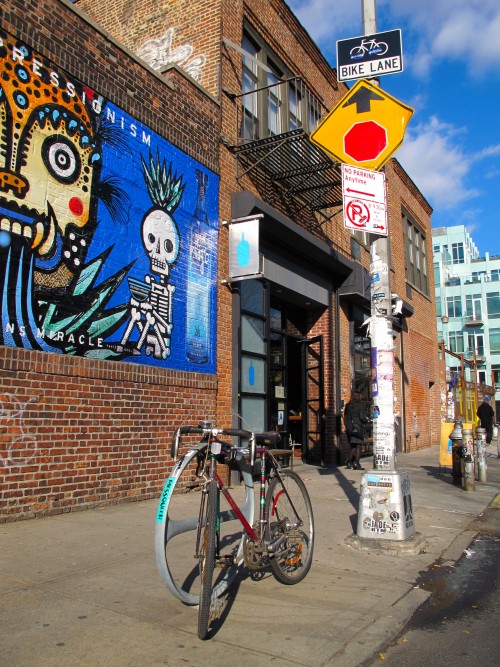
A great cafe is a great cafe, but a great cafe somewhere like New York or London is just naturally walking a higher tightrope wire, in my opinion. To do the work they do at a high volume in some of the toughest markets in the world, there’s something special about it.
CV: Which regions or cities are the most exciting with regards to development or innovation at the moment?
JM: Eastern Europe jumps off the page as being such an incredibly exciting place for coffee culture right now. The generational narrative there is part of it in a really fascinating way. All these kids born in the late 80s and 90s, the first generation to grow up after Soviet rule, and they’re the ones who are often launching these incredible cafes and restaurants.
We’re publishing more content from there and I’m hoping to personally get to do some travel in Poland and Czech Republic in 2016.
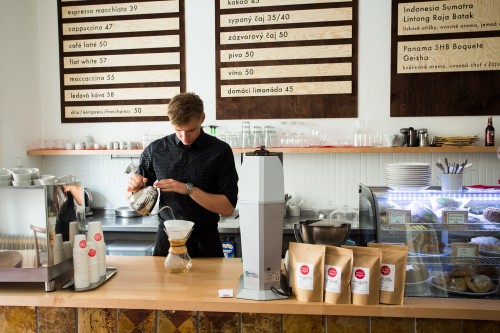
We also spent some time in Glasgow last year and the cafes there feel super raw and real to me. That city has an incredible coffee culture that’s moving fast and I think it’s a really exciting place right now.
I’ll also say Los Angeles. I’ve been down there a lot over this last year and every time I go there’s something really compelling that’s just opened. That city is such a sprawl; someday every nook and cranny will have a coffee bar and that process is well underway, which is fascinating to observe.
CV: Many businesses have attempted to marry coffee with something else like beer, food and beauty products. Do you have any idea what the next category might be that will use coffee to create something new?
JM: There’s a lot of interest over here in the United States as to how coffee pairs with cannabis products. I’m talking things like weed cold brew, cannabis coffee chocolates, you name it. And as the laws get more and more refined in the different states where cannabis is now legal (Alaska, Colorado, Oregon and Washington), there could be an opening for actual coffee bars allowed to serve cannabis to customers in the form of things like “magic mochas” and the like.
Most coffee drinks, even the most elaborate ones or brews made with particularly rare and expensive coffees, typically top out at around $5. But if you’ve got a natural cannabis extract in the milk and you’re using a strain that produces particularly euphoric and uplifting effects and the whole thing tastes delicious, well…
CV: Peet’s recently announced the purchase of two legendary independent roasters, Stumptown and Intelligentsia, who are also Sprudge sponsors. Do you think these acquisitions are a good or a bad thing for specialty coffee?
JM: That depends on your perspective. From the perspective of someone who owns a news media company, I can tell you it’s certainly been a good thing—these big acquisition stories have driven a ton of clicks and eyeballs to Sprudge over the last few months and it’s gotten people, in a wide variety of mainstream publications, to start thinking more in-depth about what’s happening in coffee culture right now.
Whether it’s a good or bad thing is a very personal response, but I know for a fact that it is an interesting topic. The wider public has never been more aware of specialty coffee than with the news of these sales, along with the publicly announced rounds of VC funding Blue Bottle raised in the last 18 months.
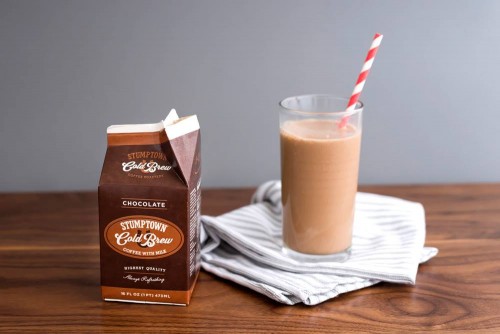
Every company manages scale differently, and economic scale inherently brings with it a new set of challenges. “Mo’ money, mo’ problems” I believe is the phrase.
I know that one thing all of these companies talk about is how more financial security and resources means they can buy more and better green coffee, and really push quality in that part of their company. Scale and the security of shared ownership and partnership can actually help you take risks. The Blue Bottle expansion to Japan is this hugely risky, hugely expensive thing and they can do that because of the capital they’ve raised.
“Having a physical space is one of our dreams, but it’s still down the road, waiting for the right combination of factors.”
James Freeman can put a beautiful cafe in just about any architecturally significant, historic building in the United States now and I think that’s not just a good thing for specialty coffee. I think it’s a ‘great’ thing for specialty coffee in terms of popping that culture bubble we talked about.
Creating spaces that engage the masses and bring people in to the culture is a very, very good thing and I expect we’ll see even more of that from these companies.
I also, of course, acknowledge why people might see the acquisitions as a bad thing. I think especially in the local business cultures around where some of these companies are based, they’ve been the local big guys for a generation and that engenders competition and nurtures hostility. Something like this acquisition news is an excuse for all the other brands in town to go knives out.
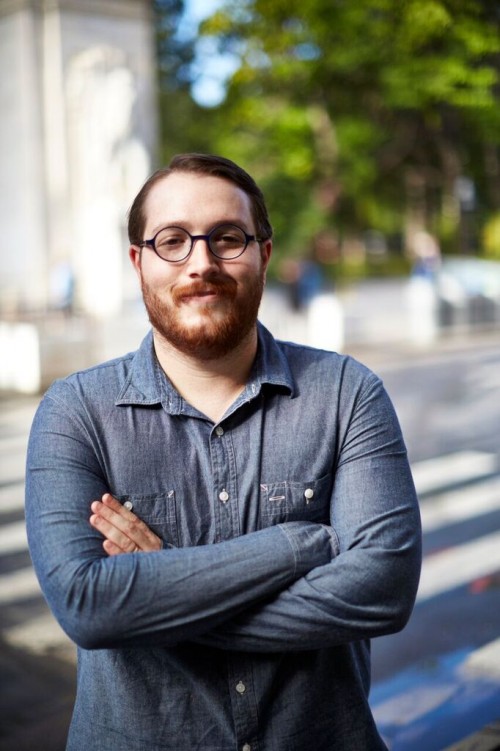
It’s a complex issue, and, I think, some of it relates back to Gen X notions of the war between independent music and big labels and labeling someone a “sell-out” if their second record came out on Warner Bros. or whatever. This cultural stigma informs a lot of the small business culture and ethos we see today. I do think it’s inspiring to see brands maintain ownership while managing growth.
I love and support independent businesses as part of my life here in Portland and when I travel, but I’m also open to seeing what some of these brands can do with a little bit of scale and backing.
CV: Are there any plans to ever open a Sprudge cafe?
JM: We’ve definitely talked about it. The coffee opportunities at a Sprudge cafe are pretty big, but we’re also really interested in things like wine, magazines, comics and ceramics. I could go on, but I think the opportunity to run a space that could bring a lot of this stuff together would be super fun.
On the other hand, right now we have websites to run with our team, and we’re still trying to make them better and better everyday. Having a physical space is one of our dreams, but it’s still down the road, waiting for the right combination of factors. It’s nice to have hills left to climb, you know?
Thank you Jordan.
Sprudge.com launched in 2009 and quickly developed into the world’s most important coffee news website. They interview the world’s leading restauranteurs, chefs, baristas, bartenders, entrepreneurs, small business owners, artists, ceramicists, and cafe creators. They highlight the best in architectural and product design, while publishing original and breaking content daily from an international team of talented professional photographers, writers, and illustrators.
Visit Sprudge.com for all in-depth stories.
Nominated for a 2015 Sprudgie award for ‘Best Coffee Subscription 2015’
Get to know the 7 cultivars that will be included in our upcoming February 2026 Coffeevine edition. Build your knowledge, enjoy your coffee.
Take a closer look at the 7 fantastic roasters and their outstanding coffees that we selected for the upcoming February 2026 edition.
Enjoy the outstanding coffees from our January 2026 edition with this handy brew guide. Tried and tested by our roasters.
We’re looking for in-depth feedback and insights from our global customer and fan base. Win awesome prizes in return for your time!
Subscribe to our newsletter for new box announcements, articles and special offers. No spam. Promise!
© 2026 All rights reserved The Coffeevine.

[…] an interview conducted a few years ago, Jordan Michelman of Sprudge explained why Eastern Europe was quickly […]